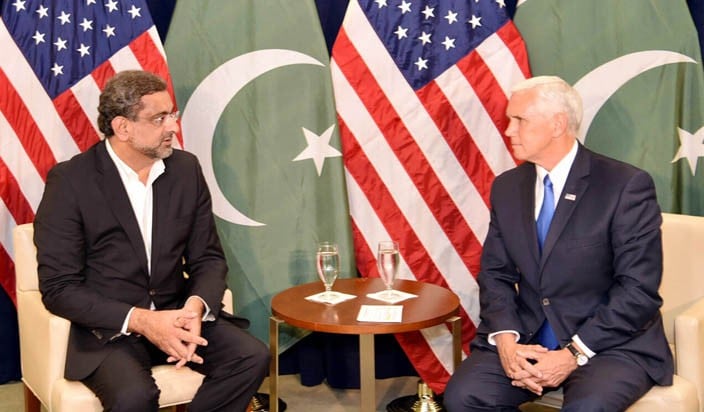
All Pakistan needs is to call time on its geopolitical outlook and shift to its geo-economics variant to be relevant in the world

The concept of geopolitics, though defined in a variety of ways, mainly refers to the control or influence over a territory for political or/and economic reasons. States have traditionally competed for power and influence through a mix of hard and soft means. In the existing world, states have increasingly been relying on geo-economics tools to realise their geopolitical goals.
Geo-economics refers to the use of economic instruments of policy on the part of a state to achieve its geopolitical goals that may be economic and/or political in nature. Trade policy, investment policy, economic sanctions, the cyber-sphere, aid, monetary policy, energy and commodity policies are ‘seven leading instruments of today’s brands of geo-economics,’ argue Robert D Blackwill and Jennifer M Harris in their book titled as War by other means. Geopolitics through geo-economics is increasingly gaining currency.
China is leading the world in the tremendous application of geo-economic tools for national interests. The country has spread its influence in the Middle East, Latin America and Africa. China invests more in Africa than the US. Venezuela, in South America, is in reception of huge Chinese aid. Similarly, China is challenging western financial might.
The Brazil, Russia, India, China and South Africa (BRICS) group is a China-led forum that has formed the New Development Bank (NDB) headquartered in Beijing. The NDB is a China’s variation of Washington-based western financial institutions of International Monetary Fund and World Bank. Likewise, it has been successfully dealing -- more often than not -- with its neighbouring countries some of whom don’t share Beijing’s worldview on managing regional affairs. Taiwan, North Korea, Japan, India and Pakistan top the list of countries that China has been dealing with in geo-economics terms despite the fact that Beijing has border disputes with New Delhi and Taipei, the two being closely allied to Beijing’s arch competitor, Washington.
Within the south Asian regional context, China Pakistan Economic Corridor (CPEC), some $60 billion project, is the most obvious manifestation of Chinese way of playing geopolitics through geo-economics. CPEC is just the tip of the iceberg. Under its One Belt One Road (OBOR) initiative, China is aiming to invest more than $1 trillion dollars for five other economic corridors in at least sixty countries straddling South and South West Asia, Central Asia and Middle East.
Although the United States has not translated its economic might into greater authority through soft means of geo-economics at par with that of China even in the post-Soviet era, in its dealing with Pakistan post 9/11, the former’s policy has mainly been informed by geo-economic perspective.
Apparently, to exact cooperation from Pakistan on the count of tackling Taliban, the Trump administration has withheld Pakistan’s reimbursement funds and hurled threats to revoke Pakistan’s major non-Nato ally status. How much is the US serious in defeating Taliban is a moot point but more importantly the US along with China is dealing with Pakistan in geo-economics terms than its geopolitical counterpart.
This policy of the two great powers is not without implications for Pakistan: Islamabad’s flexing of geopolitical, military muscles has outlived its usefulness in Afghanistan and neighbouring states.
What may Pakistan learn from China to embark upon an impressive economic growth?
China’s opening to the rest of the world and its embrace of free market principles under Deng Xiaoping in the late 1970s paved the way for the country’s three-and-half decade long economic boon, registering an average of almost 10 per cent growth. This milestone was made possible by the provision of stability under Deng’s iron-fist rule which included the dark episode of Beijing’s use of brute force against pro-democracy demonstrators in Tiananmen Square in June 1989 which killed hundreds of people. Today China may be billed as politically communist but economically capitalist.
Pakistan is in want of security and political stability. Opening to the world, which Pakistan did before India could do so, Pakistan’s way of registering impressive economic growth is essentially different from China’s. Whereas China remains communist, Pakistan has never been one. Although a post-colonial state, Pakistan has the hallmarks of an authoritarian state, but it has never been a match of China when it comes to curbing political freedoms.
All we need is to call time on our geopolitical outlook and shift to its geo-economics variant. That necessitates strengthening, not undermining, civilian institutions, a decisive break from any support to non-state actors and incentivising Afghanistan, not punishing it.
We need to mend our way to be relevant to ourselves, the region and the rest of the world. Geopolitics through geo-economics doesn’t necessarily entail changing national interest goals but their means. Geo-economics is continuing ‘war by other means’.